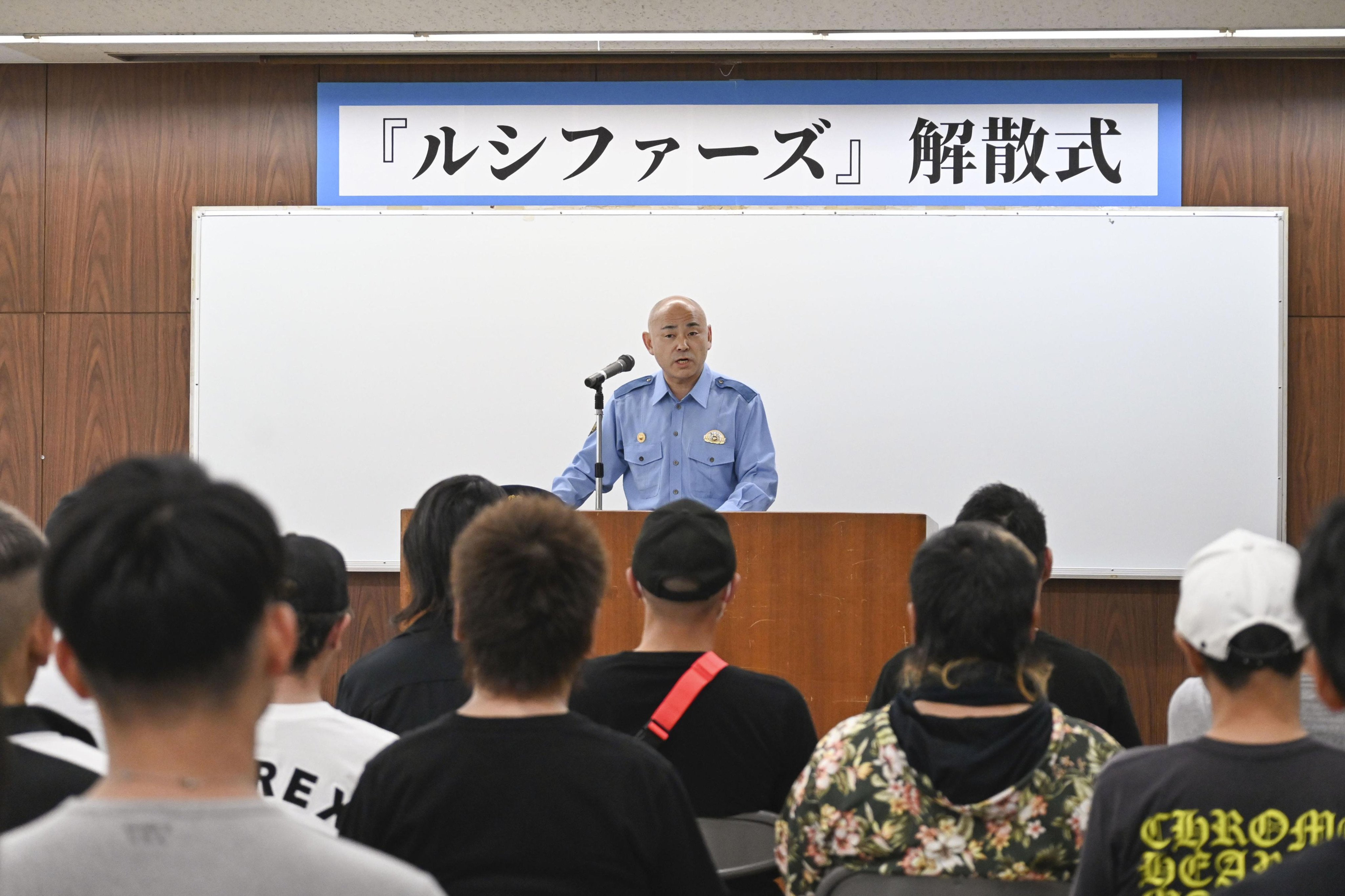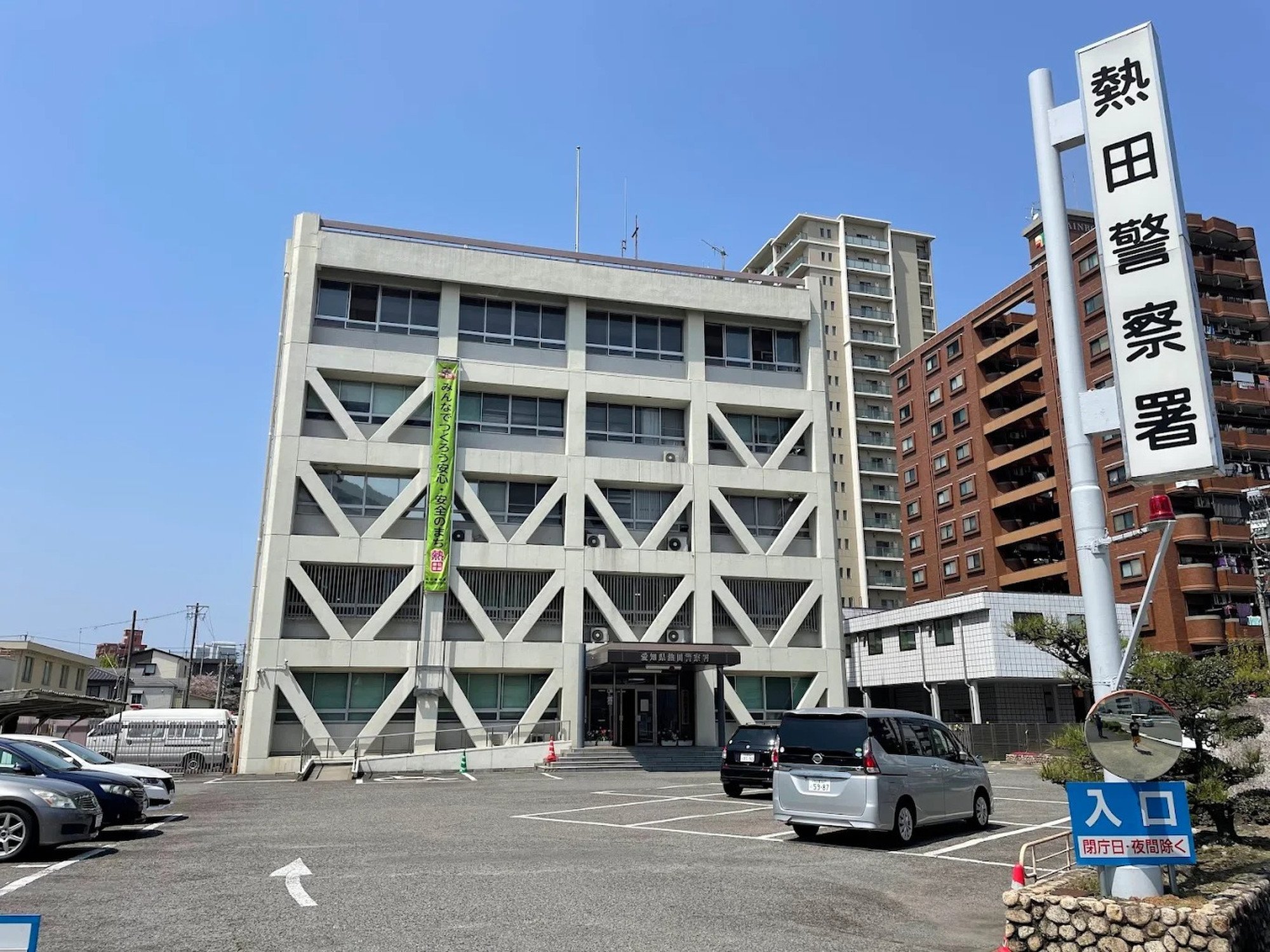Goodbye, Lucifers: why a notorious Japanese gang just called it quits
After nearly three decades of notoriety in Nagoya’s criminal underworld, members vow to ‘never again cause trouble or distress’ or re-establish the group

A notorious street gang in central Japan has disbanded in a rare public ceremony held at a police station, a symbolic move that officials say could help break the cycle of youth violence – though some remain sceptical it will lead to lasting change.
About 30 members of the gang known as the Lucifers gathered on Sunday at Atsuta Police Station in Aichi prefecture, where they formally announced the group’s dissolution after nearly three decades of notoriety in Nagoya’s criminal underworld.
The event was attended by gang members ranging in age from teenagers to men in their 50s, who stood in rows inside a police hall to deliver their pledge to “never again cause trouble or distress” as well as to never re-establish the organisation.
Police chief Masaki Suzuki, accepting the declaration, offered a message of encouragement. “I officially accept the declaration of disbandment of the Lucifers today,” he said, according to Japanese broadcaster CBC News. “I hope each of you will strive in your respective paths, whether in work or studies.”

Authorities said they welcomed the gesture but would continue to verify members’ reintegration through monitoring and outreach support. Police plan to offer vocational training and social assistance, particularly to the younger members.
The dissolution comes in the wake of intensified law enforcement pressure on the group, including the arrest of 25 members since May. The gang’s 47-year-old leader, Daisaku Odagiri, is currently on trial for assault, and had submitted a formal notice of disbandment to authorities late last year, according to SoraNews24.
Founded in the mid-1990s by teenagers in Nagoya, the Lucifers became one of the region’s most visible bosozoku-style gangs, notorious for riding customised motorcycles, engaging in group brawls and staging defiant shows of force in public. At its peak in the early 2000s, the gang had about 500 members and was frequently linked to theft, violence and disruption.
Sunday’s ceremony was designed to signal a clean break with that past. A 15-year-old member told CBC: “I joined out of curiosity. Being labelled as part of the Lucifers made life difficult. This opportunity has strengthened my resolve to move forward properly.”
Police officials noted that declarations of gang disbandment were uncommon but not unheard of – and must be followed by sustained behavioural change to be considered genuine.

The ceremony also comes amid a broader decline in Japan’s gang culture. Yakuza membership fell to a record low of 18,800 in 2024 – a fraction of its peak of more than 180,000 in the 1960s – according to the National Police Agency, driven by tougher crackdowns, public backlash and the ageing of gang leadership.
In April, the country’s largest crime syndicate, the Yamaguchi-gumi, submitted a written pledge to police promising to end conflicts with rival factions – a move widely seen as a response to mounting internal pressures and heightened law enforcement scrutiny.
Unhandled type: inline-plus-widget {“type”:”inline-plus-widget”}
Nagoya, long a hotspot for youth gang activity, has seen such groups targeted by police for acting as recruitment grounds for larger criminal syndicates. The disbandment of the Lucifers is being treated as a potential turning point.
Still, doubts linger about whether the former members will stay out of trouble. Online reactions to the event were mixed, with some praising the move as a positive step towards rehabilitation, while others expressed scepticism, warning that the ceremony could amount to little more than a performance.